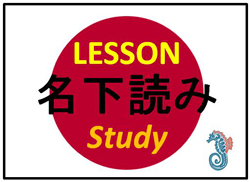All school leaders want their teachers to have good-quality continuing professional development (CPD) that develops them as individuals and makes a measurable and significant contribution to school improvement. Clearly a number of challenges get in the way for many schools; budgetary and time restrictions being just a few. Furthermore, research from the Teacher Development Trust shows that, at present, the vast majority of CPD is having no impact in the classroom, and too few schools are bothering to check to see how, if at all, CPD is transforming teaching and learning.

Jugyoukenkuu (or ‘Lesson Study’ as it is more widely known) is the Japanese art of teacher professional development. It involves the identification of an area of teaching that needs to be developed, by a group of teachers.
The group then plans a lesson together (the research lesson) to address that area of need (with a particular focus on specific students to monitor their progress). One teacher then delivers the research lesson, whilst the other members of the group observe the lesson. They then interview the target students to gauge their progress and engagement during the lesson. The lesson is then reviewed by the group, with strengths and further areas for development identified. The process is then repeated (with somebody else teaching the research lesson) based on this review – with a view to refining the teaching strategy being looked at.

No-one would argue against the place of CPD in schools today, but I believe that for many years there has been a lack of coherent processes and management systems guiding it.
This means that many CPD activities may not be as effective as they could be because many schools do not have a clear idea of exactly what works - and what doesn't.
Despite spending £180 million on staff development and training in 2011, the Teacher Development Trust estimated that 37 per cent of English schools have rarely or never evaluated its impact.
If schools don’t have a full picture of the effectiveness of CPD, how can they know where to target their investment in order to help teachers raise attainment?
There is an art to observing lessons, just as there is an art to teaching them. Observing and evaluating the effects and impact of teaching requires particular skills that in many cases need to be developed through practice.
Performed well, lesson observation can be a hugely empowering process that gives recognition to the unique skill set required for highly effective teaching. Undertaken poorly, it could cause a dent in teachers' motivation.
The advice below supports a natural approach to observation, which appreciates that there is a story behind every lesson that links the teaching with pupils’ responses to the lesson and the progress that this is giving rise to.

A community-driven platform for showcasing the latest innovations and voices in schools
Pioneer House
North Road
Ellesmere Port
CH65 1AD
United Kingdom